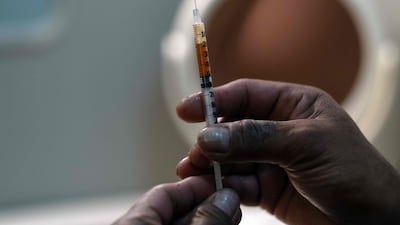A UN report has revealed a staggering 45 per cent surge in the number of people suffering from drug use disorders.
The World Drug Report 2023, released on Monday by the UN Office on Drugs and Crime, estimates one in five people worldwide – equivalent to 39.5 million individuals – are grappling with drug use disorders.
“Continued record illicit drug supply and increasingly agile trafficking networks are compounding intersecting global crises and challenging health services and law enforcement responses,” the report said.
The number of people who use drugs rose to 296 million in 2021 from 240 million in 2011.
About 22 million people use cocaine, 36 million use amphetamines, while about 60 million and 219 million people use opioids and cannabis, respectively.
Young people are the most vulnerable to drug use and are disproportionately affected by substance use disorder. In Africa, 70 per cent of people in treatment are under the age of 35.
The report emphasises that the drug trade is fuelling the operations of extremist groups. In the Sahel region, for example, drug sales serve as a financial lifeline for non-state armed actors and insurgency groups.
Afghanistan is the leading global producer of illicit opium poppy, responsible for about 80 per cent of the world's supply used to manufacture heroin, but the Taliban issued a ban on opium poppy cultivation in April 2022.
It is unknown how this will affect future harvests
The report predicts that the “changes in opium production in Afghanistan will have implications for opiate markets in virtually all regions of the world”.
It also indicated a shifting drug economy in Afghanistan, with the increased use and manufacturing of methamphetamines raising the question of whether both the markets for this drug and that for heroin will develop concurrently or if one will push out the other.
In the Middle East, the illicit market for the amphetamine Captagon is experiencing rapid growth, said the UN report.
Assuming all amphetamine seizures in the region are attributed to Captagon, seizures have doubled since 2020, reaching an unprecedented 86 tonnes in 2021.
Syria and Lebanon remained the primary departure areas for Captagon shipments.
The shipments are destined for Gulf countries, either directly by land or sea, or indirectly through other regions like Southern Europe. Furthermore, there are indications of emerging destinations in North and West Africa.









